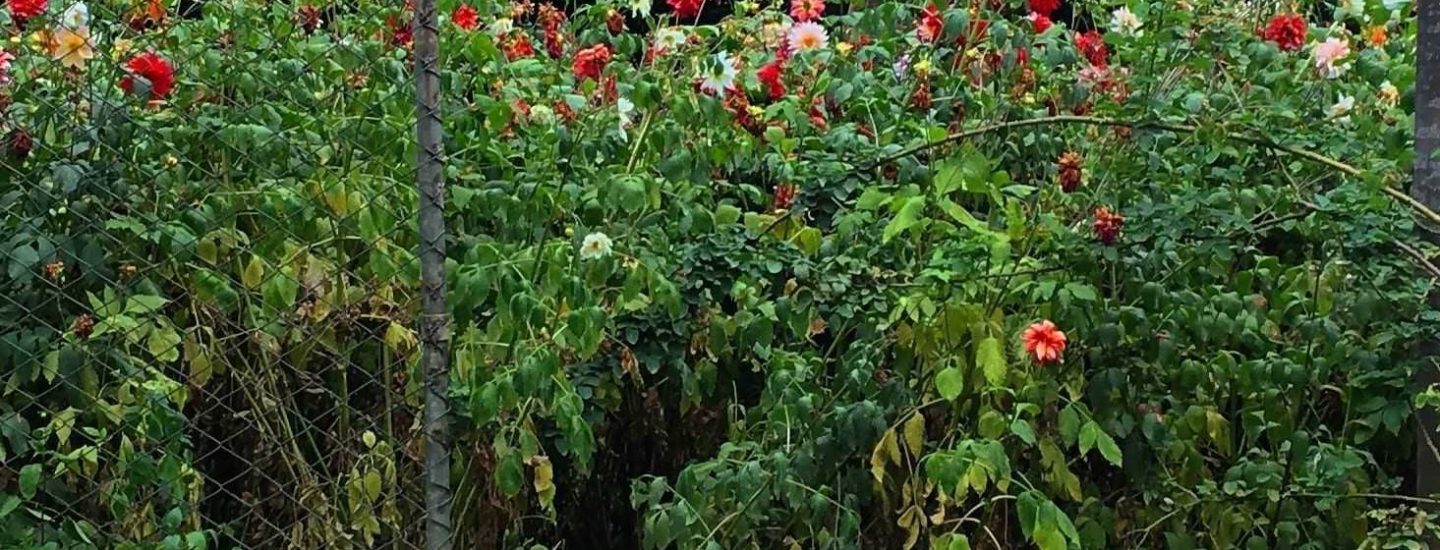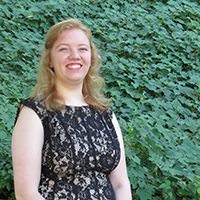Finding Comfort in Our Limitations

Editor’s Note: Current Missioner, Anna Klonowski reflects on her own limitations that guide her response when faced with the suffering of others.
“Me duele el alma.”
“My soul hurts,” Desi told me as we were sitting on a bench together during a beautiful morning in September. Despite the fact that she doesn’t sleep well, has a hearing loss, and can’t walk without assistance, Desi often tells me about the things that hurt in her soul rather than in her body. While she can’t easily recall how long she has been at the nursing home, or what day of the week it is, she remembers clearly the day that her half-sister’s family told her they were taking her on vacation, only to drop her off in a nursing home eight hours from the place she lived her entire life, never visiting again.
I’ve found that this is what I spend most of my time doing: listening to these stories of old and new wounds that, while they aren’t so visible from the outside, weigh heavily on the people I visit. Like with Desi’s story, sometimes the emotional, mental, and spiritual pains of life hurt more than the physical. I think that caregivers around the world see that reality, and so do we all through the difficulties life has given us.
For me, having the opportunity to listen to and learn from the pain and wisdom these hardships have brought to people I care about has put me face-to-face with my own limits and given me an opportunity to examine my motivations. There are no magic words I can say, no band-aids I can place that can “fix,” these wounds. This is a vulnerable place to be, sitting alongside people whose painful stories remind me of my own helplessness and limitations. When I have no other option but to be still and listen, I can admit to myself that, sometimes, I don’t just want to help because it makes another person feel better, but also because it makes me feel better.
I don’t like feeling uncertain, out of control, or useless—I think this is a trait I share with humanity as a whole. Not having the option to patch everything up neatly allows me to accept my limits and define the gifts I do have to offer. I don’t feel resigned when I acknowledge all the things I can’t or shouldn’t do, I feel emboldened to offer all that I have, without feeling guilty for being unable to give what I don’t have.
When I forget these lessons, or need a reminder, I often turn to a familiar prayer written in honor of an inspiring Catholic, Saint Oscar Romero (canonized October 14, 2018). Here is an excerpt:
This is what we are about.
We plant the seeds that one day will grow.
We water seeds already planted, knowing that they hold future promise.
We lay foundations that will need further development.
We provide yeast that produces far beyond our capabilities.
We cannot do everything, and there is a sense of liberation in realizing that.
This enables us to do something, and to do it very well.
It may be incomplete, but it is a beginning, a step along the way, an
opportunity for the Lord’s grace to enter and do the rest.
We may never see the end results, but that is the difference between the master
builder and the worker.
We are workers, not master builders; ministers, not messiahs.
We are prophets of a future not our own.
–Cardinal Dearden, 1979
Reflection Questions: How do you encounter God’s peace in situations that are out of your control?
Tagged in:

